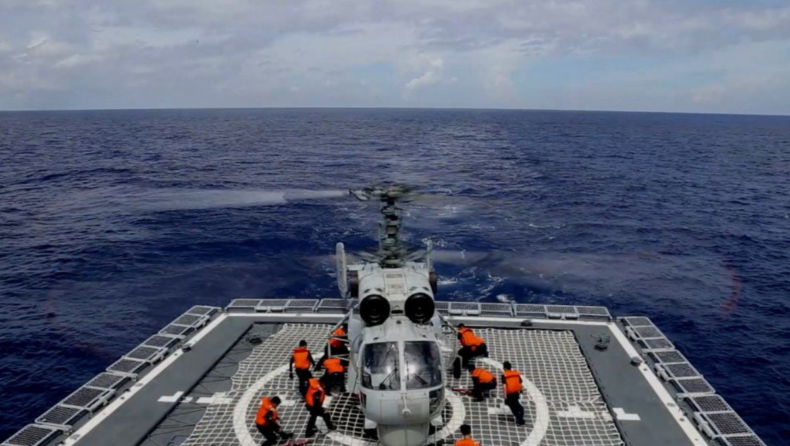As Beijing escalated military exercises close to the democratically governed island, Taiwan said on Wednesday that it would exercise its right to self-defense and launch a counterattack if Chinese soldiers breached its territory.
Beijing, which asserts Tai-wan as its own despite the adamant opposition of the Taipei administration, has conducted military drills around the island this month in retaliation for Nancy Pelosi, the speaker of the US House of Representatives, visiting Taipei.
According to Tai-wan defence authorities, China’s continuous “high intensity” military patrols close to Tai-wan and its goal to turn the Tai-wan Strait between the two sides into its “inner sea” will be the primary causes of instability in the area.

Taiwan
According to Lin Wen-Huang, Taiwan’s deputy chief of the general staff for operations and planning, “For aircraft and ships that entered our sea and air territory of 12 nautical miles, the national army will exercise right to self-defence and counter-attack without exception”
Chinese drones have routinely flown close to Tai-wan’s tiny groupings of islands along China’s shore, which has drawn complaints from Taiwan.
Lin said that the military would use the same authority to launch a counterattack against Chinese drones that disobeyed orders to depart Taiwanese soil after posing a danger.
Tuesday, just after President Tsai Ing-wen instructed the military to take “strong countermeasures” against what she called Chinese provocations, Taiwan fired warning shots at a Chinese drone for the first time.
The islets in Tai-wan’s Kinmen chain, which are located close to the Chinese towns of Xiamen and Quanzhou, were buzzed by drones once more on Wednesday, according to the Taiwanese army.
The drones later returned to Xiamen, it was said.
Zhao Lijian, a spokesman for the Chinese Foreign Ministry, restated Beijing’s stance that Taiwan belonged to China during a routine news briefing.
“Firstly, I need to tell you, Tai-wan is a province of China, it has no so-called defence ministry. The Tai-wan authorities are playing up their nervousness, this is meaningless,” he said.
The ministry earlier last week labelled Taiwanese allegations of drone harassment as “not worth fretting about.”
Director of the National Defence University military university Ma Cheng-Kun stated during the same briefing that China may take more action to prevent foreign navy ships from passing through the strait without its consent.
If foreign navy ships insist on their freedom of navigation, he warned, “After the new military normal status has been consolidated, then the risk of collision will increase if foreign naval ships insist on the rights of navigation and freedom,”
According to John Kirby, the national security spokesperson for the White House, China is still attempting to “permanently alter” the situation around Taiwan, and the United States would not stand for it.
Kirby, referring to the People’s Republic of China, said: “The concerns expressed by leaders in Taiwan are understandable given the aggressive, assertive, coercive, and quite frankly, unnecessary, activities that the PRC continues to conduct from a military perspective in and around the Strait.”

In recent years, American warships and those from allies like Britain and Canada have often navigated the Taiwan Strait, including two US Navy vessels last week.
Despite being well-equipped, Taiwan’s military is outclassed by China’s. Tsai is in charge of a modernization programme and has prioritised boosting defence spending.
China hasn’t ruled out using force to seize control of the island. Beijing’s claims of sovereignty over the island are rejected by Taipei, which asserts that only the people of Taiwan have the power to make such decisions.













